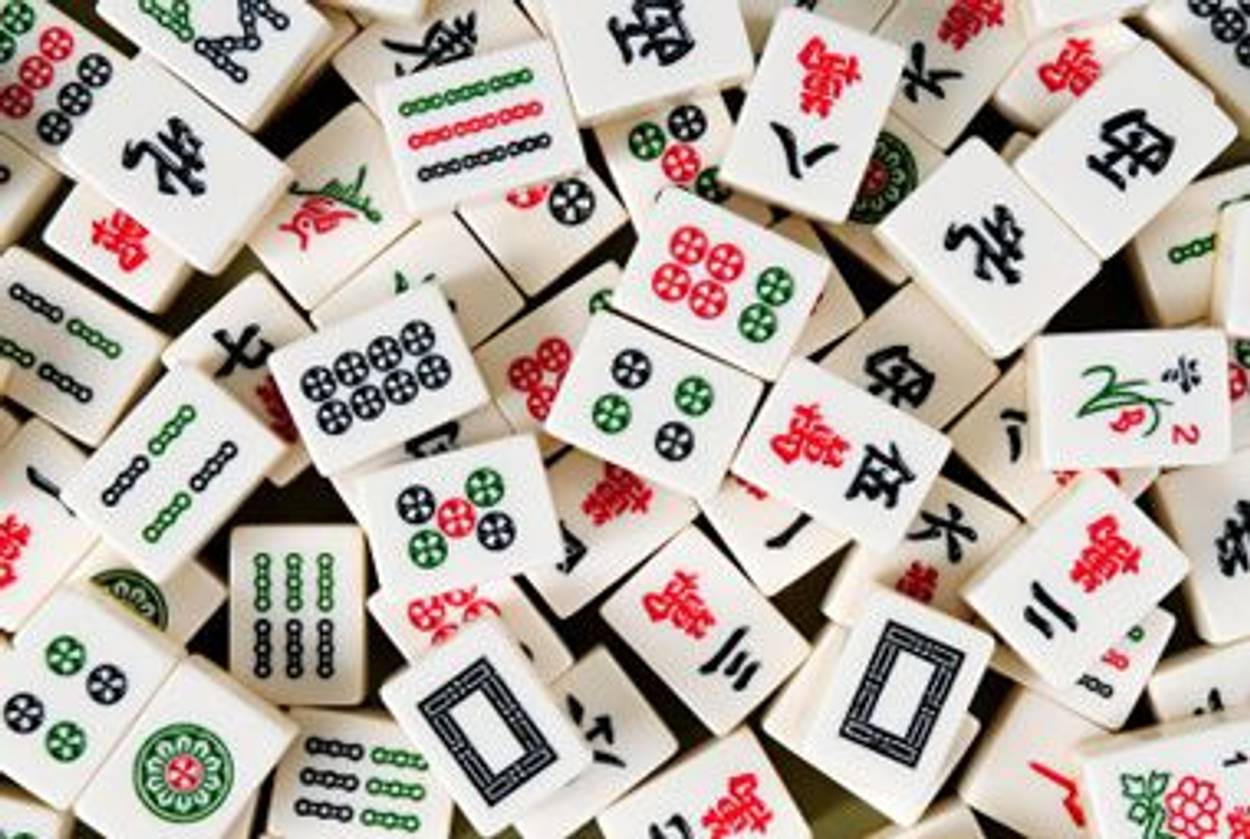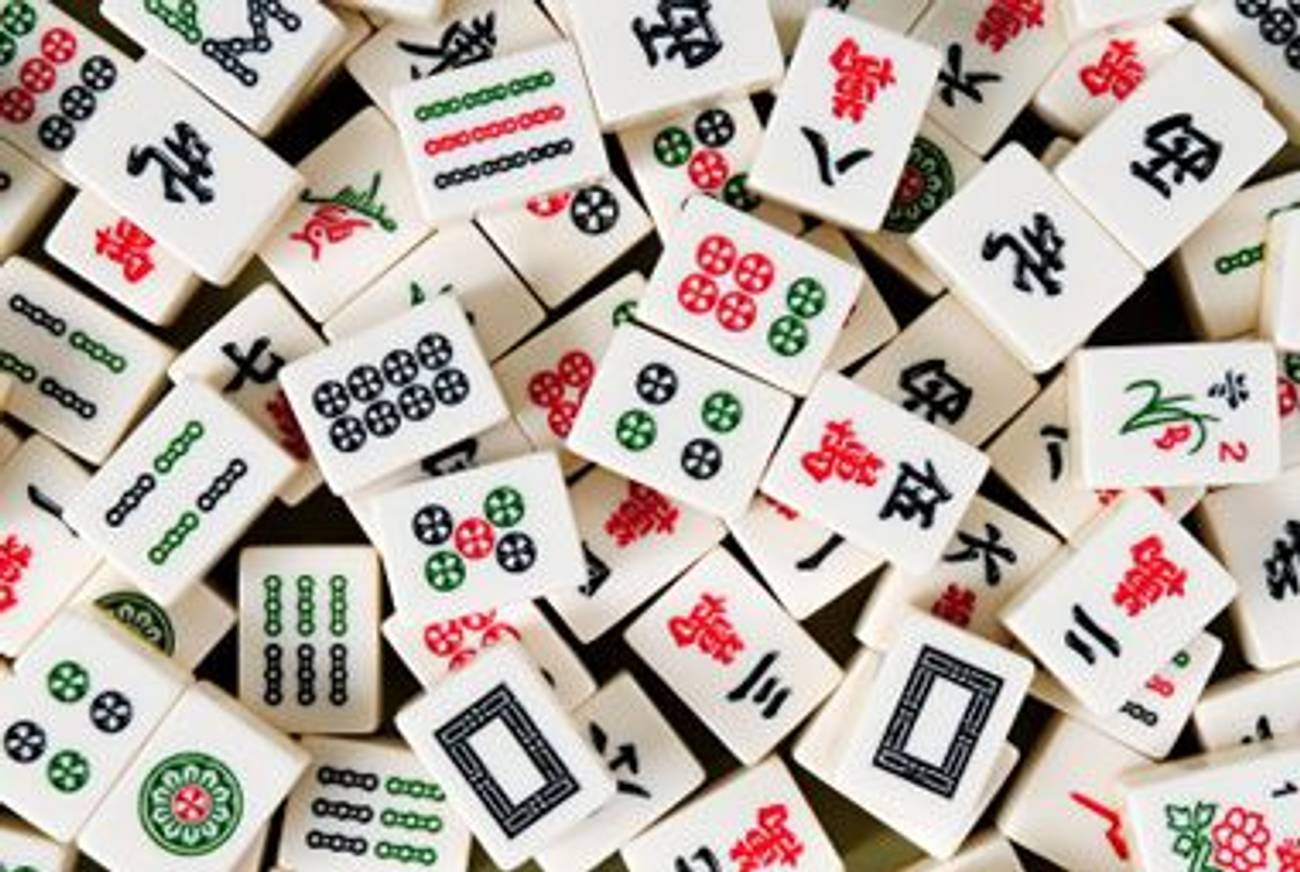Game Face
A visit to the ladies who determine the dos and don’ts of mahjong




Mahjong, the tile game created in China and made famous by Jewish women in the early decades of the 20th century, has experienced a resurgence in recent years. While Hollywood power players hold parties where guests play the game and mahjong-themed tchotchkes take up room in the Jewish kitsch machine, a new generation of devotees is coming face to face with the National Mah Jongg League, the game’s notorious gatekeepers, alternately known as the “mahjong mafia” and the “mahjong police.”
While the fundamental rules of the game—which is similar to rummy, but played with tiles divided into three suits, “Bam,” “Crak,” and “Dot”—have remained the same since the League’s founding in 1937, the game changes annually based on that year’s official mahjong card. It lists the 50 or so acceptable winning hands, approximately half of which are new each year. And when players have a dispute over the arcane rules of their individual game, the official way to resolve is by calling the League. Marla Aizenshtat, 52, who plays mahjong with a group at the Washington DC Jewish Community Center, has had to call twice. Both times she was confronted, she said, with a stern “gravelly” voice brusquely dispensing a verdict. “I had this vision of a woman taking time out of her mahjong game with a cigarette hanging out of her mouth,” says Aizenshtat. Debra Weiss, 53, who plays with Aizenshtat, describes it as “a call avoided at all costs,” but she also recognizes the value of threatening arbitration: “We get like children: ‘I’m telling Mommy!’ It’s a great tool for stopping an argument.” Joyce Spielberger, 47, who’s based in Birmingham, Alabama, has been playing for three years and has a different conception of the League: “We have this vision of these little old Jewish New York-y ladies sitting around saying, ‘How can we piss ‘em off this year?’”
The first time I called the NMJL to set up an interview, Marilyn Starr, the group’s secretary, curtly explained that I’d have to fax my credentials on letterhead before Ruth Unger, the League’s president, would speak to me. I could imagine how Starr, endowed with a brash New York accent, could scare people off, but mostly she reminded me of my grandmother.
The NMJL office is a small, stark place in a large office building in midtown Manhattan. When I got there, Starr, a buxom woman in a drapy maroon sweater who looks well under her 72 years, was eating French fries and the room smelled of grease. Above her on the dirty white wall hangs an amateur needlepoint depicting women with puffy hair of various bright hues playing mahjong. Elsewhere the room is sparsely decorated with a few ornate prints of men with stringy beards playing the game, along with a hotel room-caliber still life and an arrangement of fake purple flowers. A large wood grain plastic table fills the majority of the space, on which a tabloid magazine lay open to pictures of Nicole Kidman and the lurid headline: “Did Nicole Have a BOOB JOB?”
While I waited for Unger, Starr answered the phone, chewing a fry, and talked to someone with a mahjong dilemma. I didn’t understand much of what she said, but chuckled imagining the caller wincing as Starr squawked: “You have three flowers and a joker? When did you discover you didn’t have enough tiles? That’s when you went dead. No, you can’t, you’re dead. Put it back in your rack. You’re welcome.”
Unger is hardly 10 years older than Starr, and the two of them have worked together for 18 years. Starr walked the 10 feet to Unger’s open office door to let her know that “the young woman from the magazine” had arrived, despite the fact that I was plainly sitting in front of her door. “Come on in,” said Unger, a well-coiffed 83-year-old in a brown cable knit sweater set, who, despite the tubes in her nose connecting her to an oxygen tank, also seemed younger than her years.
According to Unger, up until about 10 years ago, 95 percent of people who register with the League were Jewish women. Recently, players have become more diverse. More men are playing in “couples clubs,” and the largest growth population is elderly Italian women, who are learning to play alongside their Jewish counterparts in retirement homes in Florida. “They’re co-inhabiting leisure world and it facilitates harmony between the cultures,” says Unger. And then of course, there are groups like Aizenshtat and Weiss’s, which includes two gay Episcopal priests—one male and one female—and a Zoroastrian man in his early 30s.
The League is old-fashioned, a bastion of what Unger call “hands on” style. They only set up online card sales two years ago, they can’t be contacted via email, and—spoiler alert—there is “no magic formula” for creating the acceptable hands. Rather, Unger, Starr, and six other “ladies” (women are always referred to as “ladies” in the NMJL) each bring some suggestions to the table in August, and they play and play until they have a list of hands that’s “fluid, challenging, enjoyable,” said Unger. “It makes me feel very creative.”
Cards indicating acceptable hands are sold through the League directly and through retail stores. Money left over after paying rent and salaries goes to charity. The League has a “collector” program in which players can buy cards in bulk to resell them. For every 35 cards they sell, these collectors select a charity to receive a small donation (last year’s list of organizations tilted heavily toward Hadassah). The League also makes large donations of its own to hospitals, college scholarship funds, and Holocaust museums.
Unger has been working at the League since 1964 when her mother-in-law, then the organization’s “gal Friday,” suggested she volunteer. She has been president since 1981. Starr got her job by answering a newspaper ad (“How else did people get jobs back then?” said Unger. “We only knew from that.”) Unger gave Starr a mahjong test, asking her a question about a particular hand, and Starr, who had been playing the game since she was 12, nailed it. “I even remember the hand,” said Starr. “It was a swing hand, in the odd group.” Although in some ways not far off from the chain-smoking mafiosas envisioned by cowed players, theirs is a mixture of crudeness with warm politesse which suits both the immigrant roots and the rough-hewn feminism of the game they’re championing.
More than anything, Unger and Starr love for the game that has given their lives direction and continues to unite groups all over the country. Starr told me that some people call the NMJL just to talk, and it may come as a surprise that she doesn’t mind one bit. “Ruth says they’re lonely, but I have a good time,” said Starr. “When I’m not busy I could talk to them for hours.”
Hadara Graubart was formerly a writer and editor for Tablet Magazine.